
Volume 47 | July 1, 2021
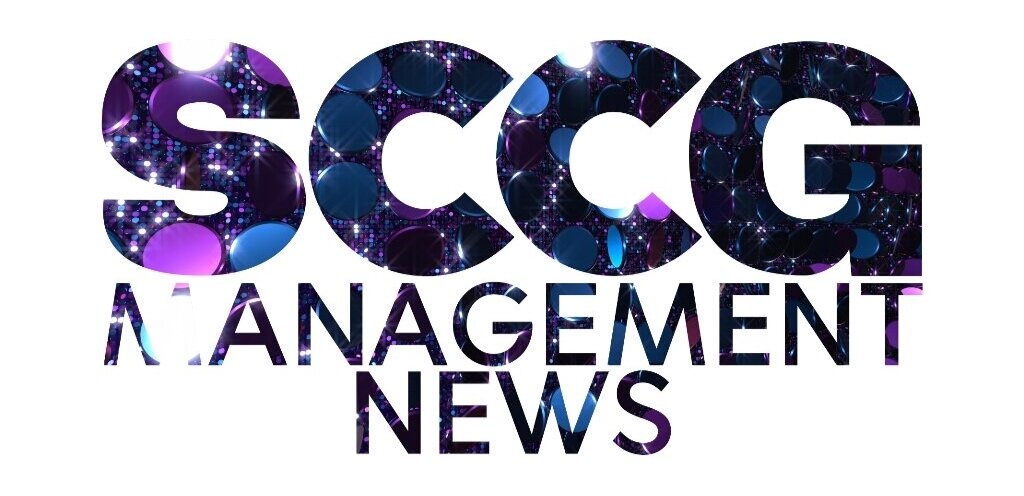
WEEKLY EDITION
July 1, 2021
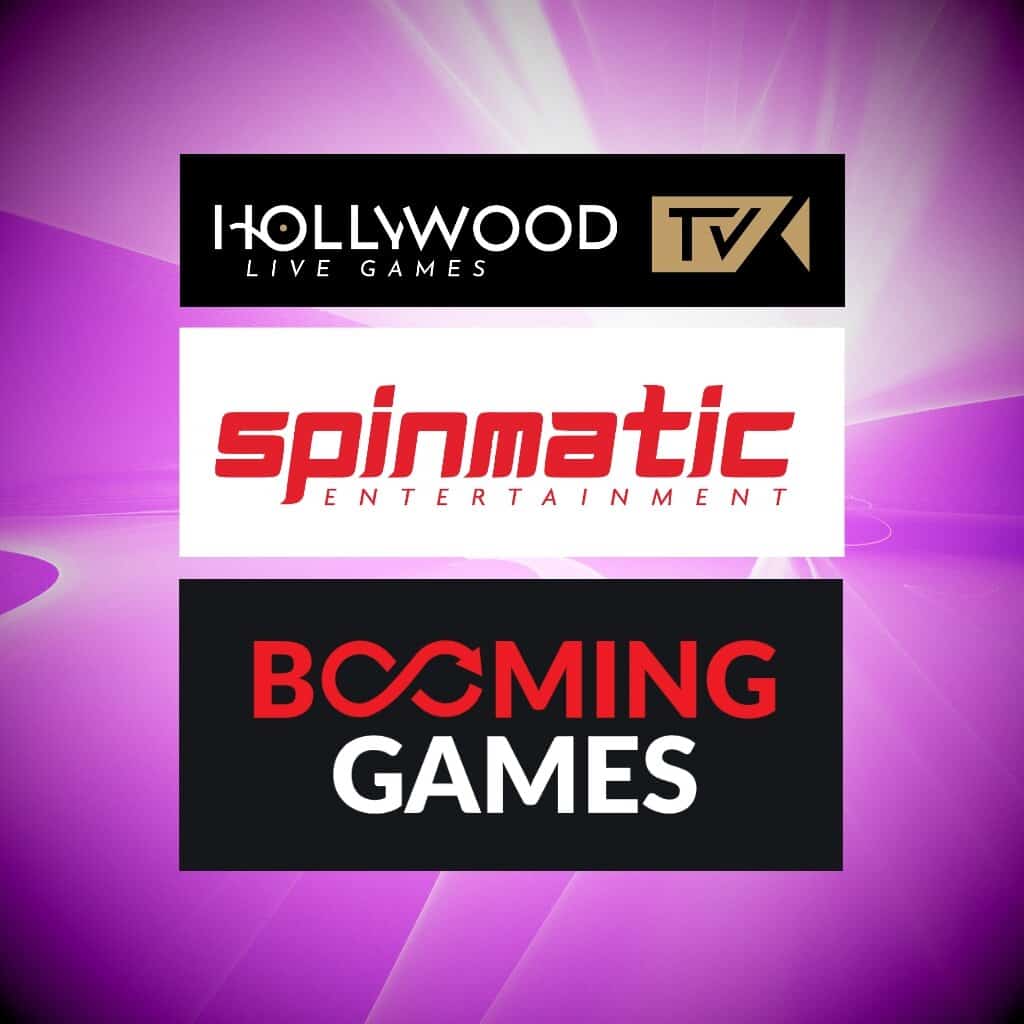
Client Partner Spotlight: Hollywood TV, Spinmatic Entertainment and Booming Games

We would like to highlight three of our client partners, each of whom specialize in high value, next level content for iGaming operators. Whether it’s an inventory of high end HTML5 game content, or a collection of jurisdictionally located broadcast studios deploying live games to players.
Hollywood TV
Hollywood TV provides the greatest live casino experience in the gaming industry. From their worldwide network of studios, HTV offers you a compliant suite of live casino games to engage your players everywhere and anytime in an immersive multi-channel experience. Backed by cutting-edge technology, an excellent team of professionals, and over 10 years of experience delivering compelling live dealer products and services in the B2B industry.
Spinmatic Entertainment
Founded in 2017, Spinmatic has revolutionized the slots market by producing superior casino games with the latest HTML5 technology. Their mission is to empower their customers, delivering high quality games to create the world’s best gaming experience. To meet their goals, Spinmatic Entertainment pays special attention to the quality of our products, including back office management, marketing resources, client support, API integration and Cisco firewall system security with N+1 redundancy.
Booming Games
Booming Games delivers high-end, next level gaming to the slots market. Booming Games offers an established portfolio that encompasses uniquely themed games, innovative features and volatilities to satisfy every spectrum of the player market. Using the knowledge of seasoned experts, they apply their years of expertise in the industry to craft games to the highest of standards, harnessing proven formulas for success, combined with the latest developments in the gaming industry. Products include a complete back office solution, innovative features and bonus spin campaigns for their mobile optimized HTML5 game catalog.
SCCG Client Partners
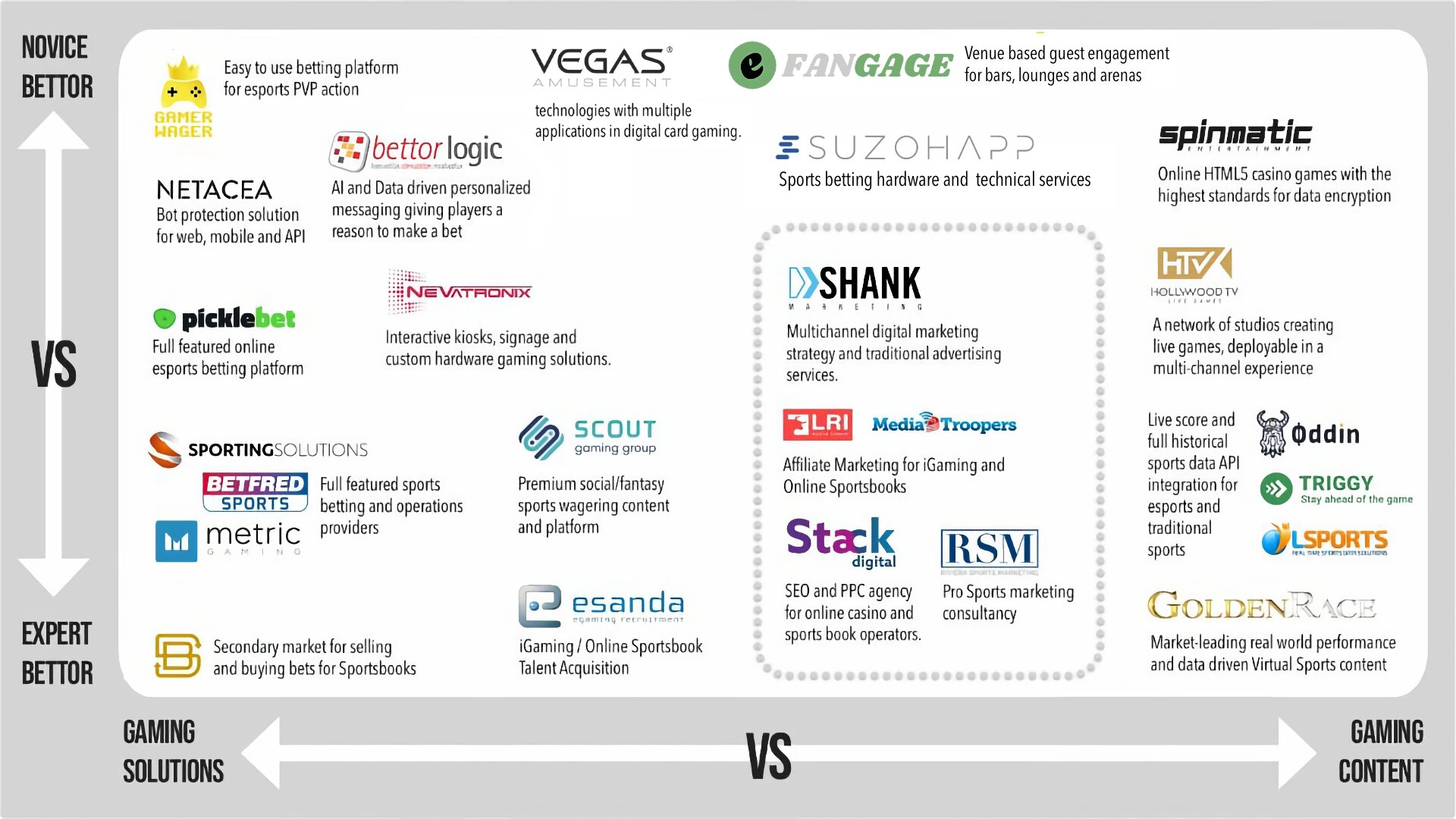
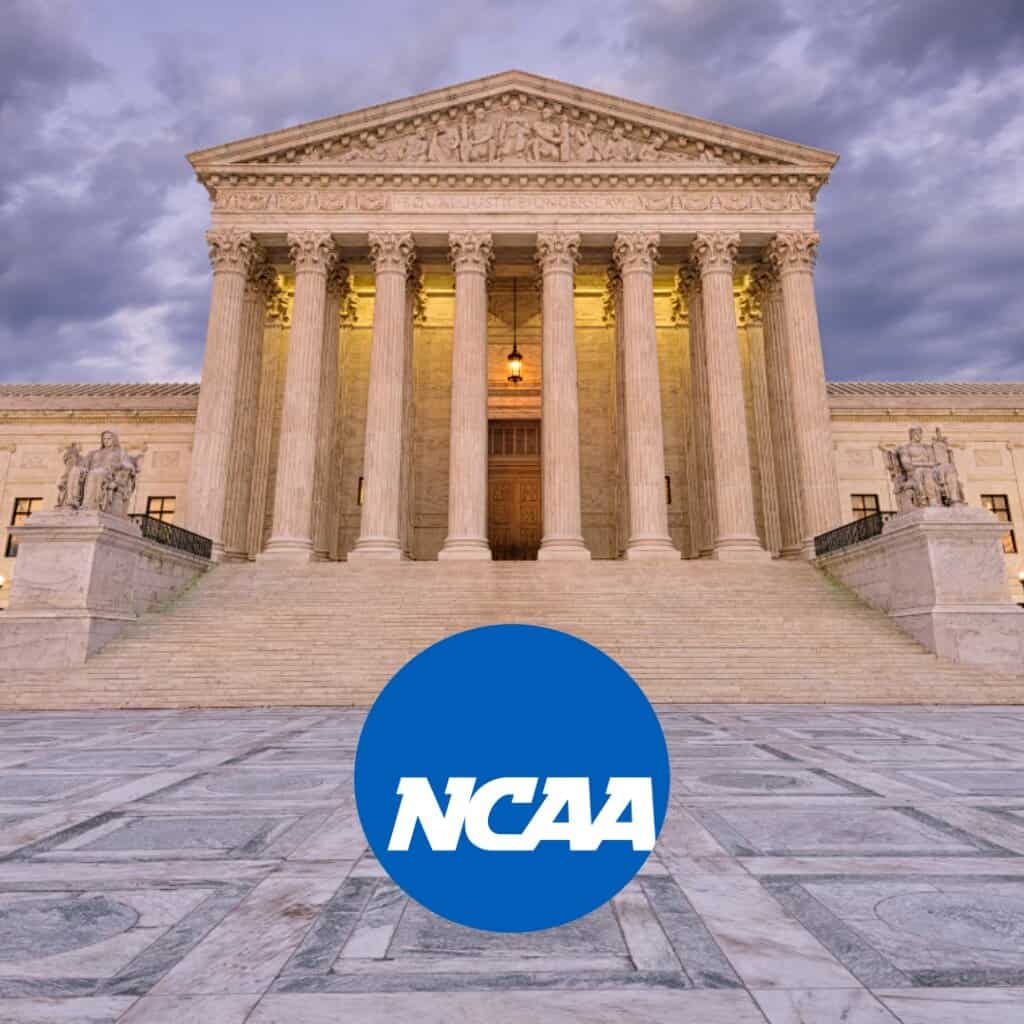

Supreme Court’s 9-0 Ruling Against NCAA Will Alter Landscape of Collegiate Sports Forever – or will it?
SCCG Contributing Writer
In a long-anticipated legal decision, the Supreme Court ruled in favor of collegiate athletes and against the NCAA, the organization whose power stems from those athletes. In a surprising 9-0 vote, the highest court in the United States said that student-athletes could receive education-related payments, which is anticipated to reshape the landscape of collegiate athletics as a whole.
Compensation for College Athletes is one debated issue that has support on both sides of Congress. The NCAA has long been seen as an exploitative organization. They can make billions of dollars in tickets, merchandise sales, and lucrative TV deals, while the athletes who spur these sales reap little to none of the benefits. The NCAA has long argued that restrictions on student-athletes are a necessary practice to ensure their amateur status. The line between amateur and professional has only become more blurred in recent years, and the Supreme Court ruling in favor of student-athletes further supports this notion. While this was a monumental court decision, it cannot be overlooked that the Supreme Court only ruled on education-related benefits. When it comes to actual monetary compensation, much of the existing framework remains intact.
The two main drivers of the NCAA’s revenue come from two-sport, football, and basketball. The money generated from these two sports generally pays for the salaries of coaches, administrators, facility upgrades, and other sports. While this boost in education-related benefits will undoubtedly be an excellent addition for student-athletes, the more significant question still remains; how will collegiate athletes earn money from their name, image, and likeness (NIL)? The NCAA Board of Governors ruled in 2019 that student-athletes were allowed to use their NIL to make money through things such as endorsement deals & public appearances. Almost two years later, it remains unclear just how this system will work, and the NCAA seems to be putting the responsibility of this matter on the shoulders of the Federal Government. The NCAA believes that collegiate sports should be regulated at a national level to create a level playing field for its student-athletes. As it stands, each state is responsible for its NIL laws, and only a handful of states have introduced legislation related to NIL law. I see this as problematic when it comes to a level playing field, as one would anticipate the star athletes to flock to the states where they can make the most money in endorsements. I believe that student-athletes should be able to profit off of their image, especially while they continue to be taken advantage of by the multibillion-dollar business that is the NCAA. I feel there needs to be a federal response to the problem, as the NCAA will continue to do everything it can to maintain a level of power that allows them to make the most money off of their student-athletes.
The way I see it, this Supreme Court Ruling seems a lot better than it is. The ruling is a step in the right direction. However, student-athletes are still unclear as to how they will be able to profit off of their name, image, and likeness, which in my opinion is a much bigger deal than the education-related benefits. With certain states passing NIL legislation before others, I can foresee some chaos on the front of NIL law. Hopefully, there will be some framework set at the National level, so there is a more even playing field for schools in all 50 states. Collegiate athletes have long fought for a share of the profits they bring to the NCAA, and it looks as though they are finally making strides to see this come

WELCOME TO YOUR ROUNDUP OF EUROPEAN IGAMING NEWS

Our weekly US-UK focused iGaming feature article summarizes the thoughts of Jake Pollard, an experienced journalist and editor who has covered the online gaming and betting industry for many years. He has written for the leading media outlets as well as operators and suppliers in the igaming space. His areas of focus are wide-ranging and include regulatory developments in the US, emerging markets in South America and how European countries are adapting to a decade of igaming regulation.
SG’s sportsbook tech is the key issue
The announcement by Scientific Games that it will sell or list its lottery and online sports betting divisions has opened up a raft of possibilities for U.S. iGaming stakeholders. SG’s aim is to reduce its debt and take advantage of the current appetite for iGaming stocks. Permutations abound as to a potential acquiror, not least because of the group’s varied and complicated tech set up across different regions. In Europe clients such as Entain (which operates and owns 50% of the BetMGM joint venture) and Flutter are major B2B clients, but their U.S. structures rely a lot more on in-house tech and expertise. Data specialist Genius Sports is a front-runner along with main rival Sportradar and other B2B majors such as Playtech or even Evolution Gaming. But regardless of who ends up buying it, SG’s tech stack is often described as ‘legacy’ and will be the key issue for any new owner wanting to seriously compete with the likes of Kambi and others.
Lobby matters
Lobbying for favourable regulations is part and parcel of business life. The ongoing and, up to now, behind-the-scenes discussions around gaming and betting legislation in major U.S. states such as Florida are sure to be replicated in states like California and Texas and others where there are strong tribal gaming interests. Although DraftKings’ and FanDuel’s argument that regulating them will increase consumer choice only goes so far. One of the requirements of their Florida ballot initiative stipulates that sports betting can only be conducted “by entities and organizations that have been authorized to conduct online sports betting in at least 10 states for at least one calendar year”. Other high potential jurisdictions for both commercial brands and tribal interests will be fought over just as keenly.
Bally’s doing their bit
Well done to Bally’s Corporation for sponsoring the WNBA team Phoenix Mercury Basketball. Bally’s will be the team’s betting partner for the next 15 years and will become a member of the Phoenix Mercury Changemaker Partners, a collective that supports diversity and inclusion.
Sponsorship changes
The news that UK sports clubs are moving away from betting and gaming sponsorships is not surprising. It comes as a result of public pressure and campaigning, along with clubs’ increased awareness of responsible gambling and which markets some of the sponsors operate in. Some observers expect the ongoing UK Gambling Act review to impose an outright ban on gambling sports sponsorships. This might be an exaggeration, but the possibility remains. Although the U.S. is a completely different market, the industry must act responsibly if it wants to avoid a regulatory and public opinion backlash.
SCCG Management: New and Upcoming Events

SCCG Management Announces Partnership with Beverly Zeliger for Strategic Digital Marketing Consulting
Las Vegas, NV – June 23, 2021 – / sccgmanagement.com / – Stephen Crystal, Founder, SCCG Management, announced a partnership with Beverly Zeliger and her firm, LA Spirit Marketing, to provide strategic digital marketing consulting to its clients and partners, inside and outside the US.

SCCG Management and Kinectify bring Simplified KYC/AML Solution to US Gaming Industry
Las Vegas, NV – June 22, 2012 – / EINPRESSWIRE.COM / – Today, Stephen Crystal announced that Kinectify and SCCG Management have entered into an agreement to bring Kinectify’s new KYC and AML tools to the gaming industry.
Stephen Crystal, Founder, SCCG Management, said of the event, “We are excited to bring this set of business essential products to the casino and iGaming industry. This product, so well regarded by many in the casino gaming space, will bring a competitive solution to our high-risk industry.”
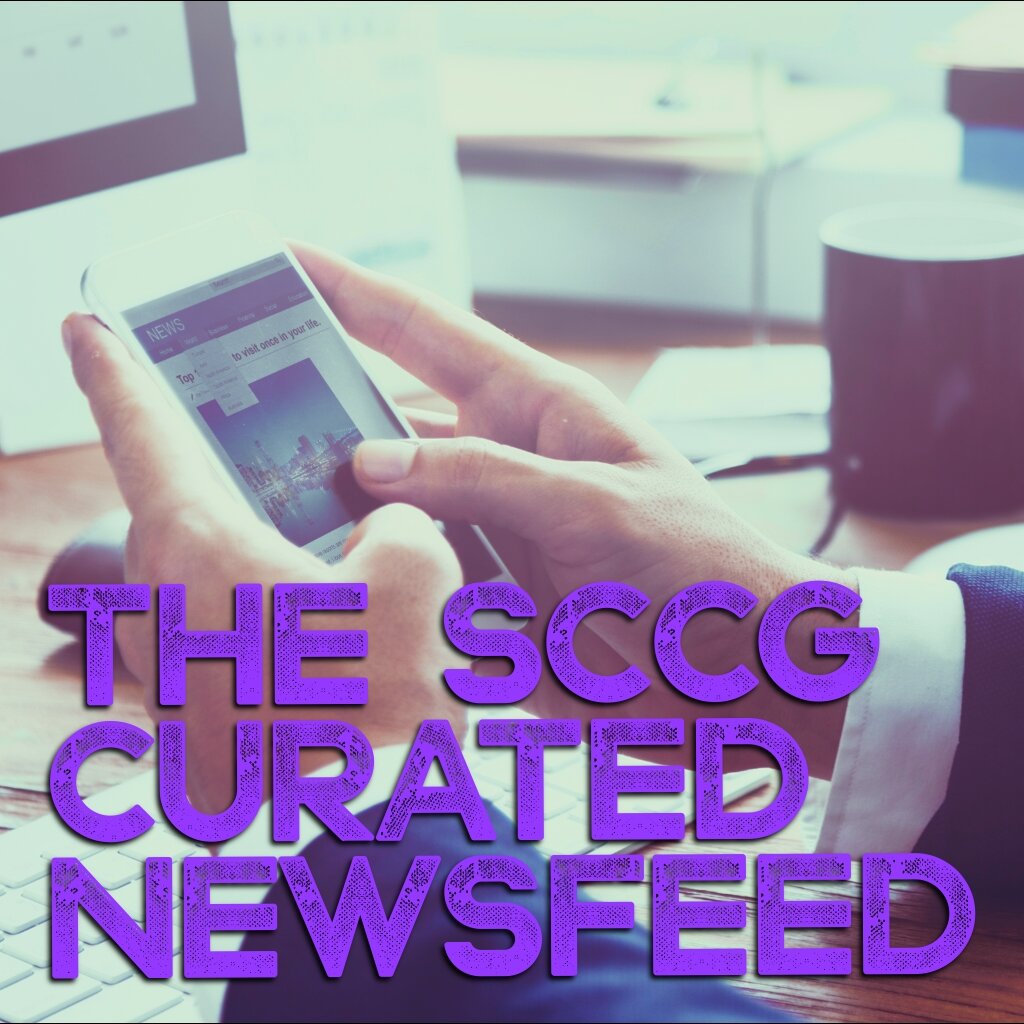
SCCG Management curates a feed of news articles from over one hundred of the best industry news sources.
Keep up to date on the items in the news that interest and excite us!







